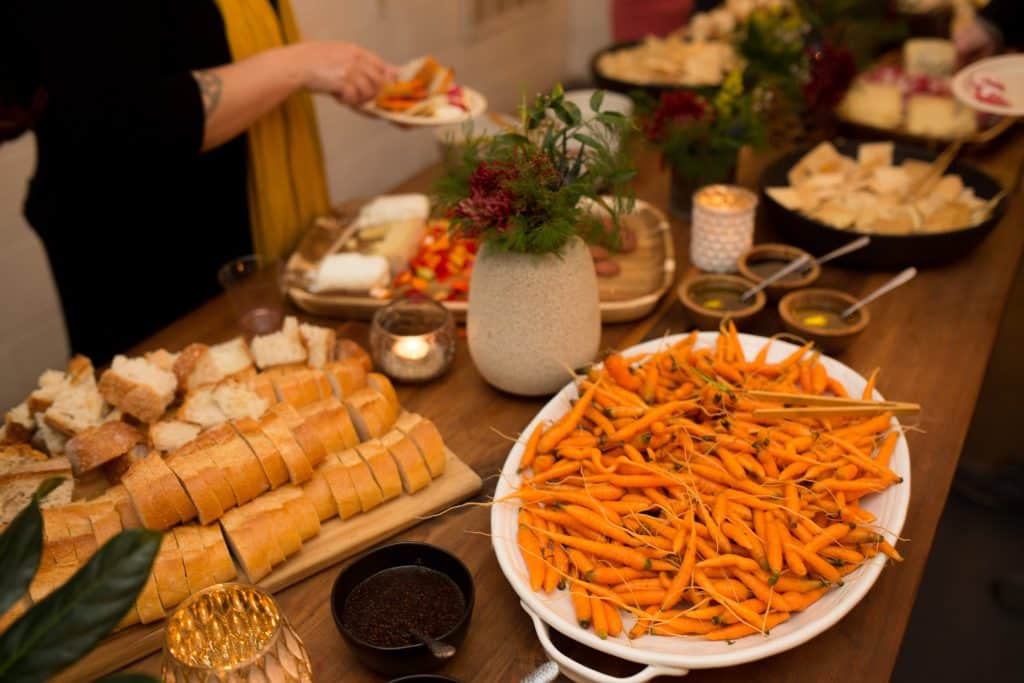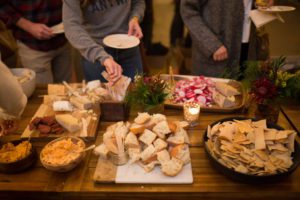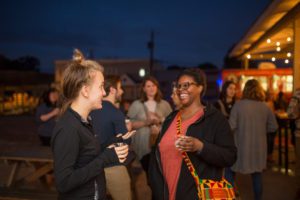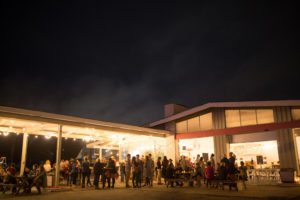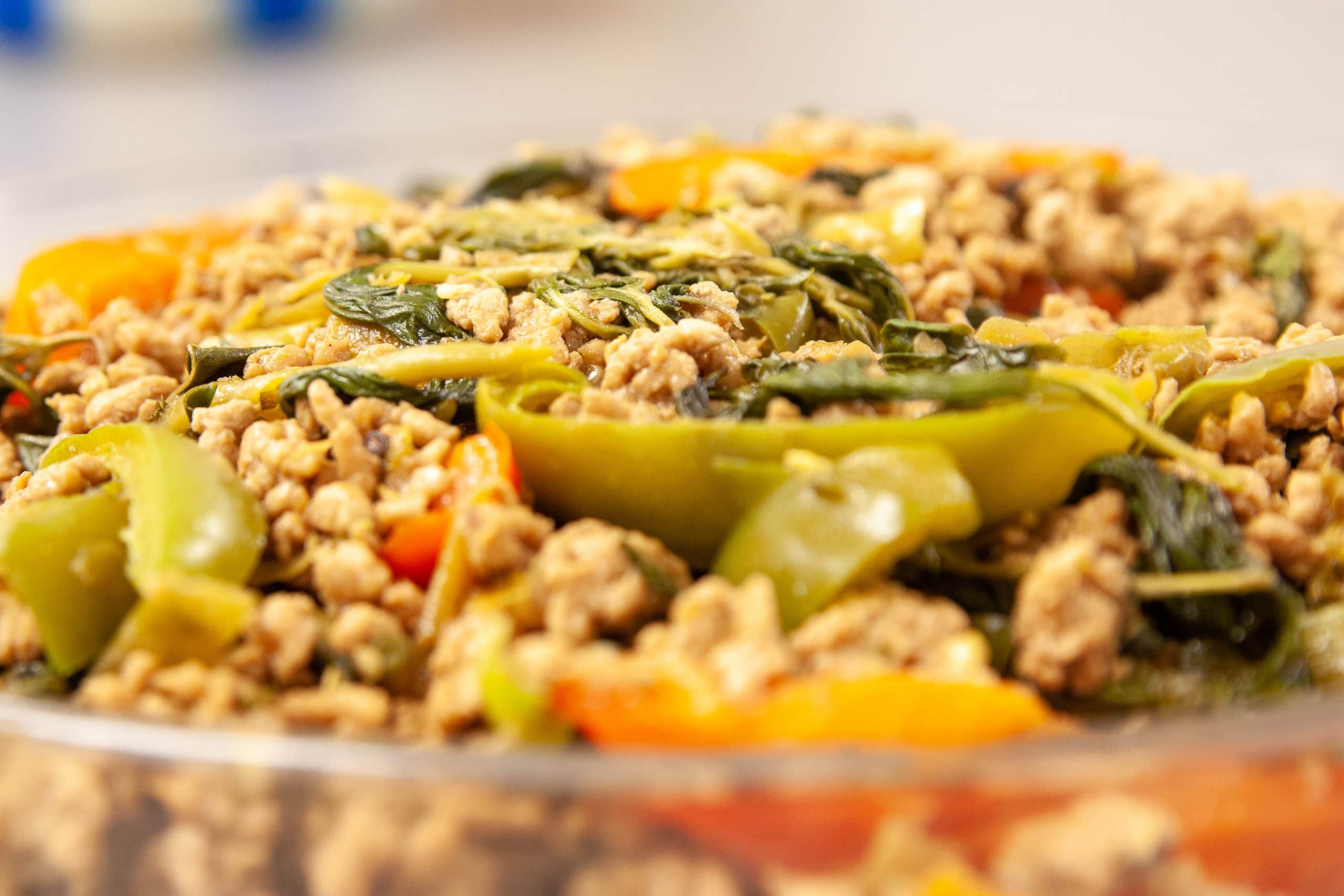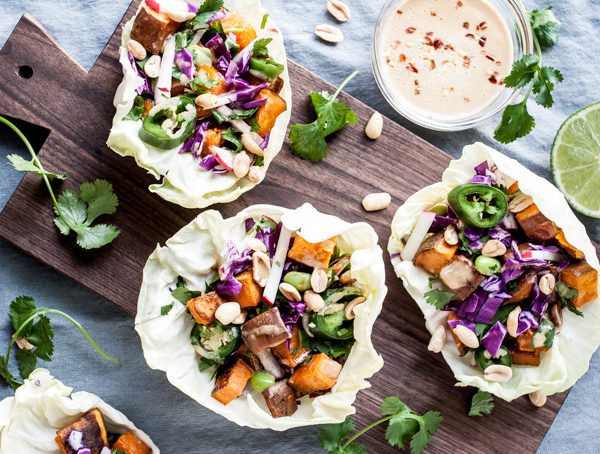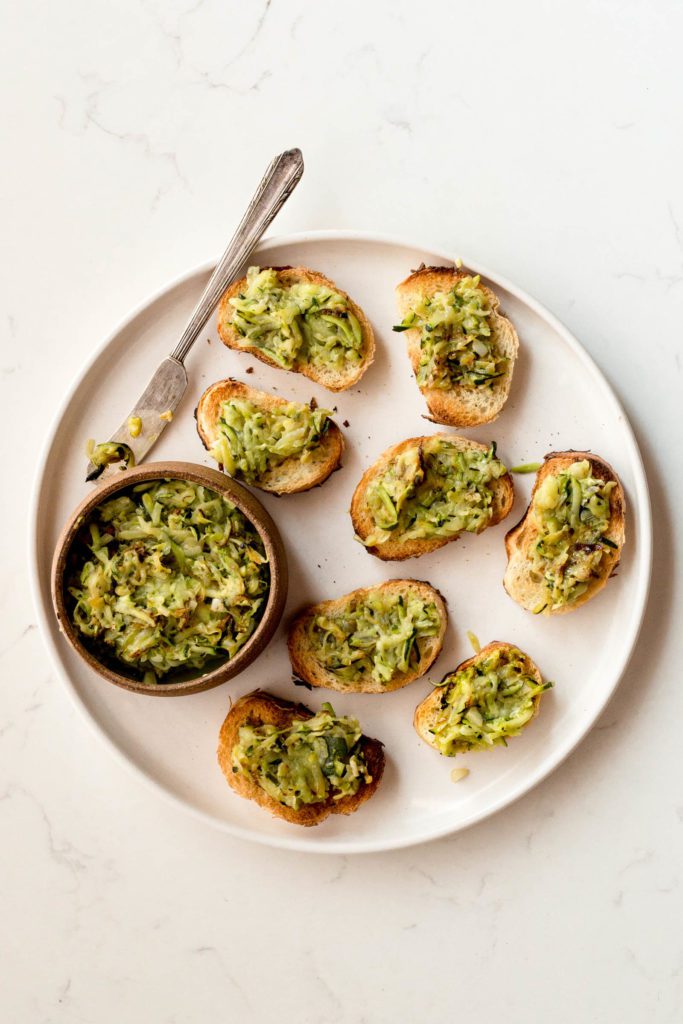We recently hosted Alice Rolls, President and CEO of Georgia Organics, and Ashley Rodgers, owner and operator of Rodgers Greens & Roots Farm for an inspiring evening around good food. Both women have made huge contributions to the organic food movement in Georgia and they gave us a glimpse into their lives and work. Here are a few of the highlights!
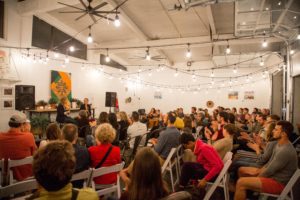
(Alice) To eat well in America is an act of resistance. We are faced with so many food decisions when we walk into a grocery store. We are hit hard with so many value added products. This food that has been primarily manufactured appeals biologically to our innate desires for fat, sugar, and salt. So when you walk into that store you literally have to arm yourself and say “no, no, no…” and most people have lost that fight in America. On the “good food diet”, you don’t have to count calories, instead you cultivate this anti global food system mentality when you walk in there and it helps you say no to all those things crying out to you to purchase.
My mother used to drag me to health food stores in the 1970’s and for those of you that remember, those were pretty scary places. She cooked and made bread every week while working a job and that taught me a lot about the power of eating around the table with your family. Thats the place where we learn about our heritage, and each other, and the world at large. Eating with others is one of the most amazing experiences that we are privileged to have. Along with my mother, Rachel Carson is another hero of mine, here she was, back in the 1960’s, fighting the establishment of the chemical industry and it’s prolific use of DDT. She was an inspiration who very calmly stood up to the chemical industry and said ‘No’. I believe that moment was the start of the environmental movement.
Fast forward to today, I read recently that just in my lifetime 30% of the birds are now gone. That only makes me want to double down on the work that we are doing. Which is why I want to stress the important role that you (the consumer) are playing. We walk into that grocery store and we resist what’s in front of us, we resist what the global food system has given us because it has made us sick, not well. It has fragmented us and we need a better system. And that is what this beautiful food movement has been doing with roots dating back to the 60’s and 70’s. Those farmers who did not “get big or get out”, and continued to grow organically for decades, eventually created the national organic program.
So its important that we support, not just our local farmers but those who are certified organic because if we purchase certified organic we are using the power of our dollar to say “I don’t just want this food, I want the seeds, I want the research, the extension offices, I want the whole infrastructure to focus on these things”.
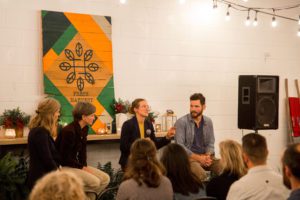
(Anna, FH moderator) Ashley, as our resident local farmer this evening, tell us how you got into farming.
(Ashley) 2010 was my first year, I graduated college in 2009 and worked at a super high end restaurant and the chef introduced me to what real food is. I started shopping at farmers markets and cooking for myself and really got inspired. Then I looked up apprenticeships and I found one in 2010 at Serenbe Farms outside of Atlanta and within a month of farming I fell in love with the food, and sharing it with other people, and that i’m sweaty – I’ve always had a lot of energy! I also realized that I can own my own business, I can do this, farming is going to be really hard but I’m going to make it happen.
(Anna) What are some of the challenges in farming that keep you up at night?
(Ashley) Weather absolutely affects what we do. We go from a 3 month drought all summer and then I’m supposed to be planting carrots in August if I’m a good farmer but its 95 degrees in September and I’ve tried 3 times but I can’t get them to germinate. And now we have all the rain and I have this schedule to adhere to and get these crops in the ground and staying on track is important. Second to weather is money to be honest. Starting your own business is expensive and it was certainly purposeful but I’ve still got bills to pay and if I can’t get those carrots in the ground on-time I won’t get the money for those carrots on-time but I have employees to pay. So that is probably what keeps me up at night more than the weather.
(Anna) You are one of the only farmers that Fresh Harvest has worked with from the very beginning. How has that impacted starting your farm?
(Ashley) I remember the first time I talked to Zac on the phone, he said “I heard you’re starting a farm, we’d love to partner up.” The hardest part of starting a farm is that you’re jumping in head first and planting all these seeds but who’s going to buy it when it’s ready to be harvested? If people don’t know who RGR is can they trust me? So for Zac to be like “whatever you wanna do, we’ll work on pricing, tell me what you’ve got and we’ll see what happens.” – to have that right out of the gate, I promise you we would not have made it through our first year without Fresh Harvest. Our first year they were at least 30% of our business.

{Alice concluded the evening well with this sentiment} (Alice) Farming is a public service, I look at Ashley as not just my farmer but she is my primary care physician, my land steward, my seed and food preservationist, my local entrepreneur, and Ag manufacturer. Our farmers play all these roles and Fresh Harvest is helping you all connect to these really critical players. They are playing an instrumental role in bridging the world between us as consumes and our farmers and the farmers need that extra layer out there. They can’t go around to all these places and sell things – they need to focus on the farm. And you all, the consumer, are absolutely an important cog in that wheel and I want to thank you guys so much for supporting our farmers and Fresh Harvest, a local business doing good work.
I’ve been able to witness the progress of the local food movement and committed people like yourself and I want to encourage you to not stop there. We need more people supporting our farmers. We’re a small mighty crowd, but enjoying good food is an act of resistance. The good food movement is a beautiful journey of joy and commitment and passion and health and all these things that will make us well and connect us to each other and to the land.
